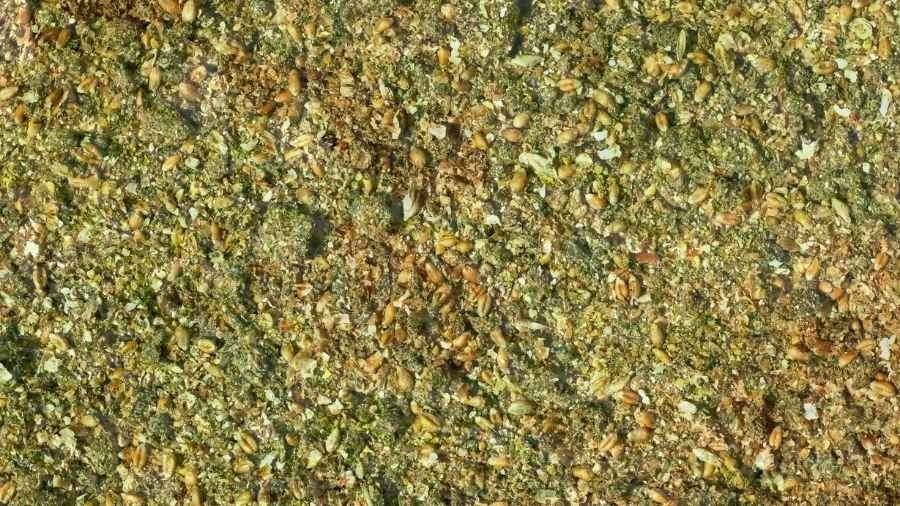Increased Demand for Animal Fodder Suppliers Drives Industry Growth

The livestock industry is experiencing significant growth, leading to a rising demand for animal fodder suppliers. Various factors are contributing to this trend. Increased meat consumption and a focus on sustainable practices drive livestock producers to seek higher-quality feed. As livestock owners search for the best animal fodder for dairy cattle and other livestock, the supply chain is evolving to meet these needs.
Market projections indicate that the global animal feed market could reach over $1 trillion by 2027. This growth is fueled by a rising population and increasing demand for meat, milk, and eggs. The need for high-quality animal feed is essential to meet these expanding demands.
Dairy cattle have specific nutritional needs. The best animal fodder for dairy cattle includes high protein content, essential minerals, and vitamins. Suppliers are responding to this need by developing specialized feeds that enhance milk production and improve overall cattle health. High protein animal fodder plays a crucial role in this regard.
Many suppliers are increasingly focusing on organic animal feed for livestock. This shift aligns with consumer preferences for healthier and more sustainable food options. Organic feed, which is
Bulk animal feed suppliers are also experiencing an increase in orders. Livestock producers often prefer purchasing in bulk to reduce costs and ensure a consistent supply. Bulk purchases enable farmers to better manage their inventory and provide animals with a steady diet. Suppliers offering bulk options frequently gain loyalty from customers looking for cost-effective solutions.
The importance of high-quality feed cannot be overstated. Quality feed leads to healthier animals, resulting in improved production outcomes. Healthier animals are less susceptible to disease and can produce more meat and milk. According to various studies, animal welfare is closely tied to the quality of feed provided. This growing awareness is prompting suppliers to maintain high standards for their products.
Trends in animal fodder are evolving. There is increasing interest in alternative protein sources for animal feed, such as insect meal, algae, and plant-based proteins. These alternatives are viewed as sustainable solutions to meet the protein requirements of livestock while reducing environmental impact. As the livestock industry continues to change, feeding strategies are also adapting.
Animal fodder suppliers are responding to these market changes. Some are investing in research to create feeds that are both nutritious and environmentally friendly. Innovations in feed technology aim to enhance the digestibility of feed, improving nutrient absorption in animals. These advancements can lead to better growth rates and lower feed costs for producers.
Sustainability is becoming a central focus in the animal feed sector. Suppliers are seeking ways to minimize their carbon footprint by sourcing ingredients locally and implementing eco-friendly practices during production. A recent report highlights that sustainably sourced feed ingredients can significantly lower greenhouse gas emissions.
The role of technology in the animal feed industry is becoming increasingly important. Many suppliers are leveraging technology to streamline their operations. From automated feeding systems to data analytics, technology is enhancing efficiency and productivity. Producers can now monitor animal health and feed intake in real time, leading to more informed decision-making.
Transparency within the supply chain is gaining importance as well. Consumers are more aware of where their food originates, including the feed given to livestock. Suppliers providing clear information about their sourcing and production processes are likely to build trust with both farmers and consumers.
As animal fodder suppliers adjust to market demands, collaborations are also on the rise. Partnerships between suppliers and farmers can lead to customized feeding solutions tailored to specific livestock needs. This collaboration benefits both parties by ensuring animals receive optimal nutrition while allowing suppliers to develop long-term relationships.
Trade dynamics are influencing the market for animal feed. Countries with strong livestock sectors are looking to enhance their import and export capabilities. Nations such as Brazil and the United States are major players in the animal feed market. Their capacity to produce high-quality feed at competitive prices positions them well to meet global demand.
The shift toward healthier and more sustainable animal feed is not just a trend but a necessity. As consumers demand more from the food industry, suppliers must adapt to these changes. The need for organic options and high protein feeds is likely to continue growing. This signals a clear opportunity for animal fodder suppliers to focus on innovation and quality.
The market for animal fodder is rapidly evolving. Demand for animal fodder suppliers is increasing due to growth in the livestock industry. Suppliers are responding by providing high-quality, organic, and bulk feed options. As livestock producers seek improved nutrition for their animals, the emphasis on sustainable practices is shaping the future of this industry. The push for transparency and technology will further enhance the supply chain, ensuring that both suppliers and farmers can meet the needs of a changing market.
Previous Story
- Current Trends in Bulk Industrial Chemicals Market
- Growing Demand for Bulk Filament Yarn Insights and...
- The New Threat to the Chip Industry -...
- Ceiling Fan with Light - Industry Trends, Market...
- Navigating Trends and Strategies in the Industrial Chemicals...
- Rubber Products Wholesale - Industry Trends and Market...
- As the Need for Copper Rises, Cable Manufacturers...
- Fibretrace Partners With Target and Cargill to Trace...